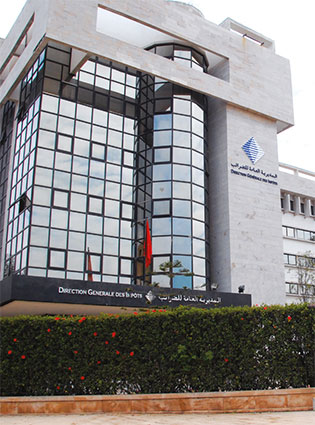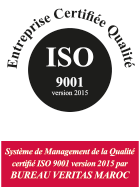
Invoices issued on software such as Word, Excel, in-house applications or on paper will soon be a thing of the past. Make way for e-bills. The Directorate General of Taxes (DGI) has just launched an international call for tenders to select the company responsible for implementing this project. The cost of the entire service package has been estimated at 6.5 million Dirhams (USD 650,000) incl. VAT, with a provisional bond of 70,000 Dirhams (USD 7,000).
The aim of the digital invoicing system is to simplify, accelerate and secure the collection of tax data, and to enhance the transparency and traceability of commercial transactions in order to reduce tax fraud and illegal practices. The system should also promote tax compliance by simplifying the process of declaring and paying taxes, and ensuring the accuracy of tax returns. The future portal will enable the tax authorities to automate the invoice verification process, thereby optimizing resources and reducing processing times, with the corollary of increased revenue.
According to the specifications, the invoicing model the tax authorities are moving towards will obviously be dematerialized, different from the paper or PDF format, but will include the necessary data to give it probative value. Two models are available for this purpose. The first one, known as “ post-audit ”, involves companies exchanging electronic invoices directly between themselves, without going through the tax authorities. The tax authorities will simply check that the invoices issued meet the required criteria. The second one, known as “ Clearance ”, gives upstream control to the tax authorities, who validate the invoice by collecting the related data. The DGI will therefore have a choice between two scenarios, to be defined in conjunction with the future contract holder.
In addition to its interconnection with the DGI’s current information system, the e-invoicing system will have to support standard formats such as UBL (facilitating interoperability and accounting of company systems), Factur-X (PDF/A3 file) or other formats complying with current tax regulations.
In all cases, the new portal will need to have certain mandatory functionalities, such as the ability to create user profiles for taxpayers and tax authorities, with distinct authorization levels for access to the invoicing portal. As with any other information system, such as the DGI’s Simpl platform, authentication and identity management criteria must be guaranteed as a prerequisite for access. Taxpayers must be able to submit their invoices online in compliance with current tax standards, by means of electronic certification. The system must also be able to check the validity and integrity of invoices before they are accepted, in order to guarantee compliance. An additional feature will enable tax authorities and taxpayers to check whether submitted invoices have been accepted or rejected. Users will receive alerts about the status of their invoices.
H.E.


























